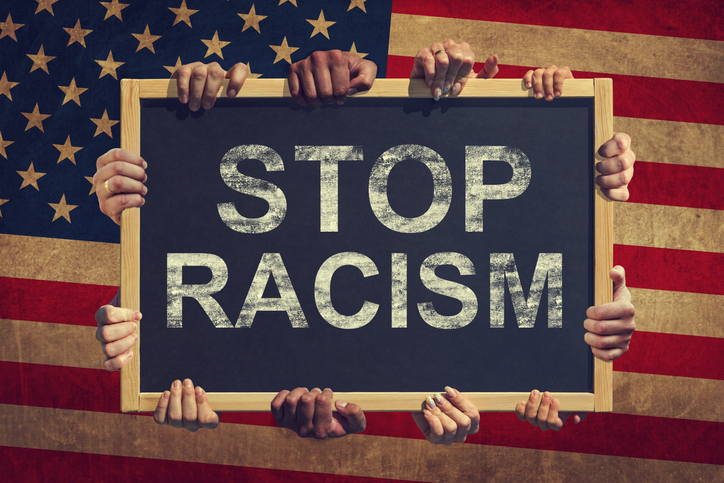
The following blog was contributed by Liz Ramos, principal of St. Michael – St. Gabriel Archangels Catholic Elementary School, Archdiocese of Indianapolis.
My heart is broken, and I wish I had answers. I wish I knew what to tell my parents when they ask what instruction will look like in the fall after ten weeks of remote learning. I wish I knew what to tell my teachers when they ask how to teach the idea of sharing in a Catholic school when suddenly they are told students cannot share classroom supplies for fear of spreading a virus. I wish I knew what to tell people when they ask whether or not they should begin leaving their homes to venture into a world filled with unknowns. Yes, these questions certainly have their place of importance, but right now, the question that I wish I knew how to answer is the one that will come when my students return to my building and ask why a man had to die in the hands of people they have been taught to trust.
Like many educators, we struggle with finding the right words to explain what happened during this unfathomable incident and so many other tragedies that occurred before this one, but our struggle to find the words is nothing compared to the injustices and oppression that so many within our society continue to face each day.
I often wonder if we, as educators, and more importantly as Catholic school educators, do enough to teach the concept of racism. In religion class, we teach our students to treat others with respect and dignity, but we often avoid discussing the consequences that could happen when we fail to do that, other than telling students that such actions will not lead one to Heaven. In history class, we teach about slavery and the Civil Rights movement, but often we quickly move on to the next topic, claiming there is so much other history to cover before the end of the year. Even in our language arts classes, when we could be discussing more modern pieces of literature that showcase the lives of people from various cultures, we turn to the “classics,” often written by Caucasian males about Caucasian families and lifestyles. Failing to teach about the importance of other cultures continues to leave the impression that one race is more important and that there is little room for those of color. We may not mean to do so, but that is the message we are sending our students when we do.
As individuals, we work hard to provide a safe and welcoming environment for our children so they can be afforded so many opportunities that may not have existed when we were their age, and yet, we find that there are obstacles that continue to prevent our society from progressing as a whole. We must seek change and allow our students to share their own stories and their own struggles and actively listen to what they are saying to gain insight into what they are feeling. Many of our students are too young to have their voices heard, and so we must be the megaphone for their voices so that all children of God can be heard. We also need to model what healthy dialogue is with all community members. While we may not always agree with what another person says, we need to welcome other voices to join the conversation so that even for a moment we are forced to think about our own ideas and values. We also need to continue to explain that people make mistakes – some graver than others – and that while forgiveness needs to be shown, it is not always easy to give, for healing wounds takes time.
While it may not always be comfortable, it is important for us, as educators, to teach our parents and our students about how to have these discussions about race and culture so that change can be made. Below is a list of books you may find helpful not only in having those conversations, but also in celebrating the lives of so many who have risen above the injustices they have faced.
Book Titles
We Rise, We Resist, We Raise Our Voices, An anthology edited by Wade Hudson and Cheryl Willis Hudson
Separate is Never Equal: Sylvia Mendez & Her Family’s Fight for Desegregation, by Duncan Tonatiuh
The Whispering Town, by Jennifer Elvgren
Rosa, by Nikki Giovanni
The Day You Begin, by Jacqueline Woodson
My Hair is a Garden, by Cozbi A. Cabrera
Something Happened in Our Town, by Marianne Celano, Marietta Collins, and Ann Hazzard
That’s Not Fair! Emma Tenayuca’s Struggle for Justice, by Carmen Tafolla and Sharyll Tenayuca